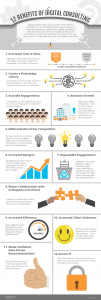We live in an age of acceleration. A time when organizations are aiming to grow exponentially. And not just monetarily, but more importantly in terms of geographical presence, the need for talented and skilled human capital, rapid innovation and enriched customer experiences. This hunt for exponential growth has forced organizations to be at an arms war as they fight for top talent, scarce resources and customer acquisition. All the while they’re aspiring to be relevant, the preferred brand and the employer of choice. It’s a tough world out there – you could say it’s like the Wild West! When there’s so much at stake and the stress levels of delivering are so high do organizations find it hard to avoid cutting a few corners? Do their practices remain ethically sound?
A Troubled Corporate World
Ever so often we hear of global organizations involved in scandals. There was the VW Group with its emissions scandal – the group is still working out strategies to clean up its tarnished image. Mitsubishi followed soon after with its top management publicly apologizing to the world. In the finance world we heard news of HSBC’s tax avoidance. And more recently there was Wells Fargo bank’s unethical practice at the hands of its sales force.
In the Tech world, we often hear of patent infringement lawsuits. Global tech giants are constantly on their toes and on the lookout to protect their interests and innovations for fear that some other organization may piggyback off its laurels. Then there’s Samsung which was severely hit by a battery scandal that it’s struggling to bounce back from. Shortly after that was the bribery charges against its Chief. It’s safe to say Samsung’s image and brand has suffered massively.
All these companies were achieving massive growth prior to their respective scandals. For a short while VW had surpassed GM and Toyota to be the largest manufacturer of automobiles. Samsung was the world’s largest mobile phone manufacturer. But all that changed when each of these exponentially growing corporations were found to be involved in ethically unsound practices.
Escalating Stress
With so many strict controls that constantly keep being revised, updated and made even more strict, organizations find themselves cornered. We all know the saying about what happens when you corner a lion, right? Organizations find themselves in similar situations. Their strategies aim to push out innovative products that’ll captivate the imagination of consumers. However, strict controls (laws and regulations) sometimes give rise to the idea of cutting corners that may be ethically out of line. Does that mean we need to rid ourselves of these regulations? Or should we be debating to ease it in favor of organization’s growth.
Meanwhile, organizations are pushing their employees to raise their game and drive more performance out of them. The talent market is brutally competing to acquire more knowledge, skills and competencies that’ll help them succeed, climb the corporate ladder and keep employers interested in them. Not only that, they’re fiercely competing to raise their organization’s brand acceptance. The pressure on them, as individuals, is equally high as it is for the organization’s they represent. This pressure can sometimes lead them too to choose ethically questionable methods to receive praise (Wells Fargo).
Why We Need More Controls
Technological advances and innovation is changing who we are, what we are, what we do, how we do things and even what we know. It’s a whole new world from what it was ten years ago. And at the pace technology is expanding the next five years may not look like what it does today. People are generally more informed thanks to faster and easier access to information and mobile technology. To add to that thanks to social media channels people are far more connected and information travels in an instant. Simultaneously, advances in artificial intelligence, bio-engineering and wearable tech has empowered people to do much more than was possible just a decade ago. A massive explosion of real-time information, connectivity and engineered lifestyles. It’s all happening – and it’s happening exponentially!
The challenge now is how laws and regulations (the controlling mechanisms) can keep up with the pace of recent advances. Sure on the flip side more controls could lead to increased frustration and give rise for the need to make ethically wrong choices, but without it we could see more chaos. Recent R&D in autonomous vehicles is fast making self driving cars a reality and raises the question of who would be held responsible if a pedestrian is hit. Similarly, as robots continue to feature more human attributes would they be subject to the same criminal laws and human rights?
With rising exponential technologies – in areas such as artificial intelligence, medicine and transportation – the gap increases in our governance, ethics and legal frameworks. It’s becoming more and more challenging for our legal system to ascertain what’s morally acceptable and ethically sound. As the issues become more and more complex we’re left questioning the definition of life, personal privacy, the value of human resources and far above, our dignity. In these accelerated times it’s going to be quite interesting to see how corporations adjust, manage and shape our future while remaining ethically, morally and legally on the right side.
Business & Finance Articles on Business 2 Community(79)
Report Post








